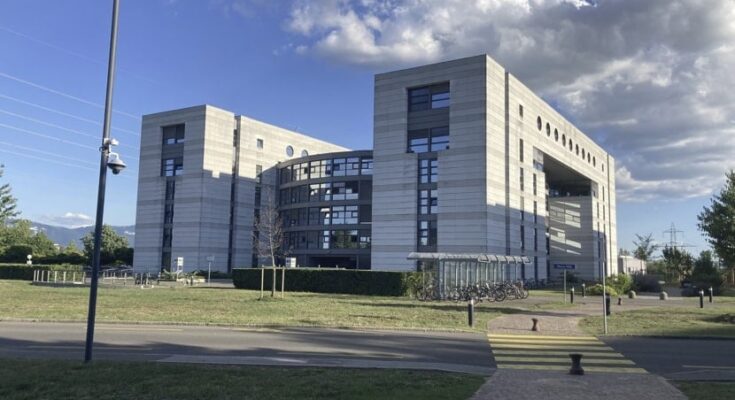
Greek physics professor Konstantinos Fountas was elected as the President of the European Organization for Nuclear Research (CERN) council, it was announced on Saturday.
This development is a historic milestone for Greek science and diplomacy, as Professor Fountas, with his election, is the first Greek to obtain such a prestigious position in the world of global science.
The first time a Greek professor leads CERN
The distinguished professor of physics at the University of Ioannina and Greece’s scientific representative at CERN will serve a term from 2025 to 2027, following a competitive process against two other candidates.
The election of Professor Fountas is a true national achievement for Greece as CERN, the largest European research laboratory for nuclear and particle physics based in Geneva, is a globally acclaimed institution.
In a statement issued by Greece’s Ministry of Foreign Affairs, Athens noted that the electoral success of Professor Fountas “is due to the targeted and strategically organized diplomatic mobilization, as well as to the scientific prestige of the Greek candidate.”
Professor Fountas was born in 1958 in Greece. He has a PhD from the University of Columbia in New York, which he obtained in 1989. His thesis was on “Neutrino Production of Opposite Sign Dimuon Events at the FNAL Tevatron.”
He has also been a Reader in HEP of the Imperial College London and an assistant scientist at the Physics Department of the University of Wisconsin in the US.
What is CERN and why is it important?
CERN, which celebrates its 70th anniversary this year, is a truly collaborative effort of 24 member states from Europe and Israel, with Greece being one of the founding members.
The organization employs approximately 2,600 staff and provides services to more than 600 research institutes and universities worldwide. Its unique range of particle accelerator facilities enables groundbreaking research, pushing the boundaries of science and technology and of what is humanely possible for the benefit of all.
“CERN educates new generations of physicists, engineers and technicians, promoting the values of research and science,” the Greek Foreign Ministry statement reads.
CERN’s primary mission is to provide particle accelerators and other infrastructure required for high-energy physics research. As a result of this ability, many experiments have been conducted at CERN through multinational cooperation.
CERN is also the home of the Large Hadron Collider (LHC), the world’s largest and most powerful particle collider. The primary location in Meyrin houses a massive computing facility that is primarily used to store and analyze experimental data. As researchers require remote access to these resources, the lab has long been a key wide area network center.
CERN was also the origin of the World Wide Web.



